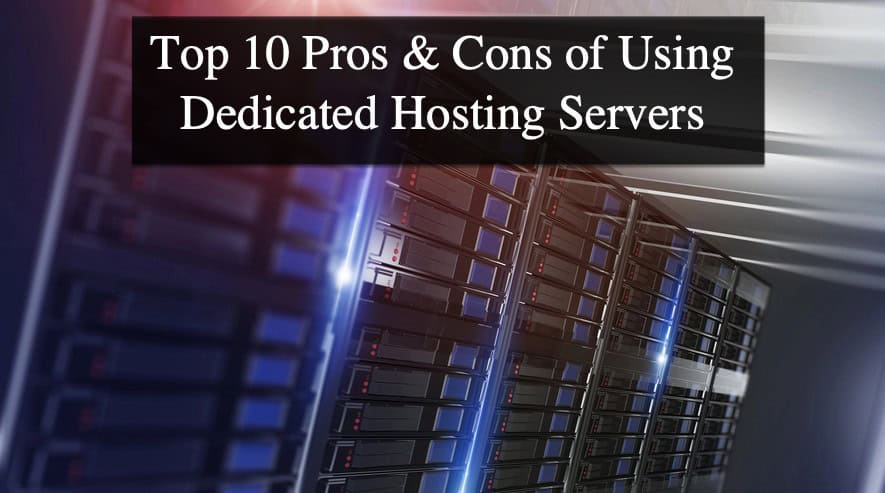
How to Choose a Web Host: 10 Top Tips for Finding the Best Provider
Advertisment
How to Choose a Web Host: 10 Top Tips for Finding the Best Provider
Introduction
Choosing the right web host is a critical decision for any business or individual looking to establish an online presence. With numerous providers offering various hosting solutions, it can be challenging to determine which one is the best fit for your needs. This article will provide you with 10 top tips for finding the best web host, ensuring that your website performs optimally, remains secure, and delivers a great user experience.
1. Determine Your Hosting Needs
Before you start searching for a web host, it’s essential to assess your specific hosting requirements. Consider factors such as:
- The type of website you are building (e.g., blog, e-commerce, portfolio).
- Expected traffic levels.
- Required storage and bandwidth.
Understanding your needs will help you narrow down your options and choose a provider that meets your requirements.
2. Evaluate Different Hosting Types
Web hosting comes in various forms, including shared, VPS, dedicated, and cloud hosting. Each type has its pros and cons, so it’s important to evaluate which option best suits your needs.
- Shared Hosting: Ideal for small websites or beginners with low traffic.
- VPS Hosting: Offers more control and resources for growing websites.
- Dedicated Hosting: Best for high-traffic websites requiring maximum performance and security.
- Cloud Hosting: Provides scalability and reliability, suitable for fluctuating traffic levels.
Choose a hosting type that aligns with your business goals and expected growth.
3. Check Uptime Guarantees
Uptime is a crucial factor in web hosting. It refers to the amount of time your website is operational and accessible to users. Look for a hosting provider that guarantees at least 99.9% uptime. High uptime percentages indicate that the provider has reliable infrastructure and support systems in place.
4. Assess Speed and Performance
Website speed is essential for user experience and SEO. A slow-loading website can lead to high bounce rates and lower search engine rankings. Look for hosting providers that offer fast server speeds and performance-enhancing features, such as:
- Solid-state drives (SSDs) for faster data access.
- Content delivery networks (CDNs) for improved global reach.
- Optimized server configurations for enhanced performance.
5. Consider Customer Support
Reliable customer support is vital, especially if you encounter technical issues. Research the support options offered by potential hosting providers, including:
- Availability of 24/7 support via live chat, email, or phone.
- Quality of knowledge base and documentation.
- Response times and customer reviews regarding support experiences.
A hosting provider with excellent customer support can save you time and frustration.
Advertisment
6. Review Security Features
Website security is paramount in today’s digital landscape. Ensure that the hosting provider offers robust security features, such as:
- SSL certificates for secure data transmission.
- Regular backups to prevent data loss.
- Firewalls and malware protection to safeguard against threats.
A secure hosting environment will protect your website and your users’ data.
7. Check Pricing and Value
While price shouldn’t be the sole deciding factor, it’s essential to find a web host that offers good value for your money. Compare pricing plans from different providers, taking note of:
- Initial costs vs. renewal rates.
- Hidden fees or charges (e.g., for migrations, backups, or additional resources).
- Included features (e.g., storage, bandwidth, security).
Choose a provider that fits your budget while providing the features you need.
8. Read Customer Reviews and Testimonials
Research customer reviews and testimonials to gain insights into the experiences of other users. Look for feedback on:
- Performance and uptime.
- Customer support experiences.
- Overall satisfaction with the hosting service.
Reputable review platforms can provide valuable information to help you make an informed choice.
9. Understand the Terms of Service
Before committing to a hosting provider, take the time to read and understand their terms of service. Pay attention to:
- Cancellation and refund policies.
- Service level agreements (SLAs).
- Acceptable use policies.
Understanding these terms can help you avoid surprises down the road and ensure that the provider aligns with your business needs.
10. Test the Hosting Environment
Many hosting providers offer free trials or money-back guarantees, allowing you to test their services before fully committing. Take advantage of these options to assess:
- User interface and ease of use.
- Speed and performance under real traffic conditions.
- Customer support responsiveness.
Testing the hosting environment will help you determine if the provider is a good fit for your needs.
Conclusion
Choosing the right web host is a vital step in establishing a successful online presence. By following these 10 top tips, you can confidently evaluate potential hosting providers and select one that meets your specific needs.
Whether you opt for shared, VPS, dedicated, or cloud hosting, prioritizing factors like uptime, speed, security, and customer support will ensure that your website operates efficiently and securely. Investing the time to research and choose the best web host will ultimately contribute to your website’s success and growth in the digital landscape.
Advertisment












Post Comment